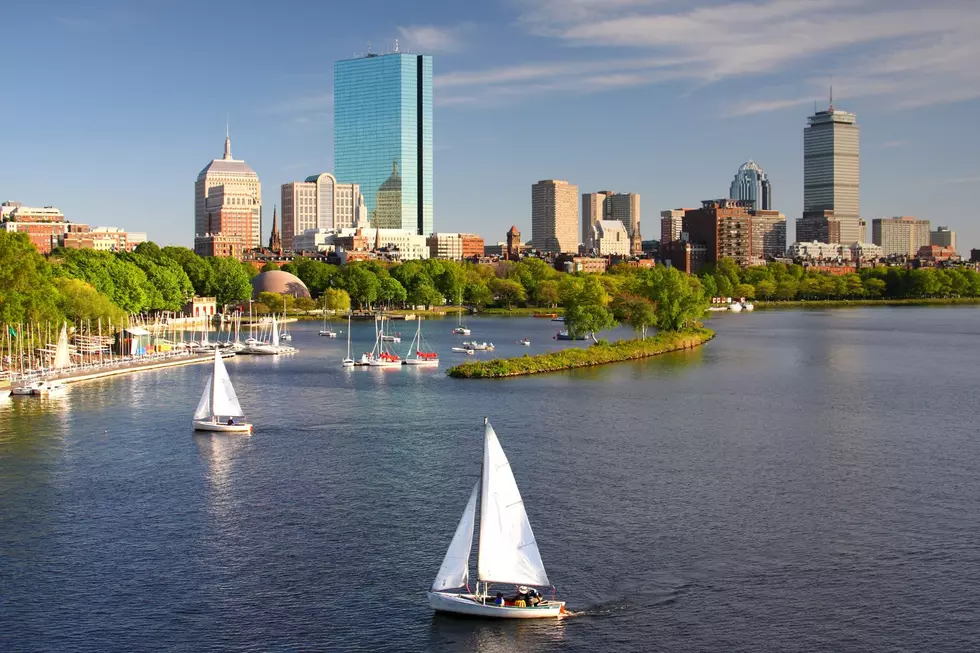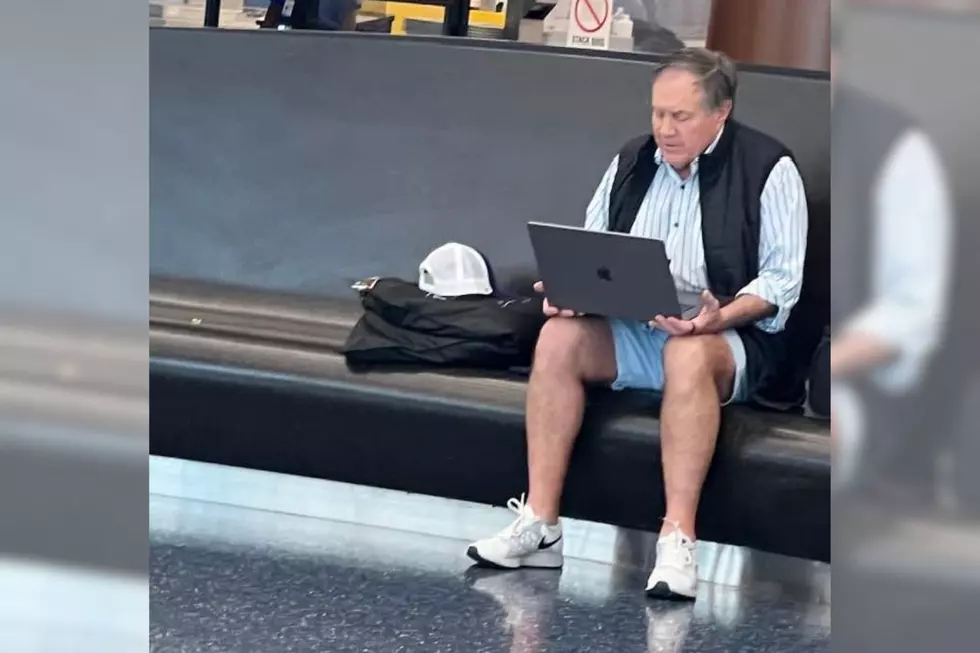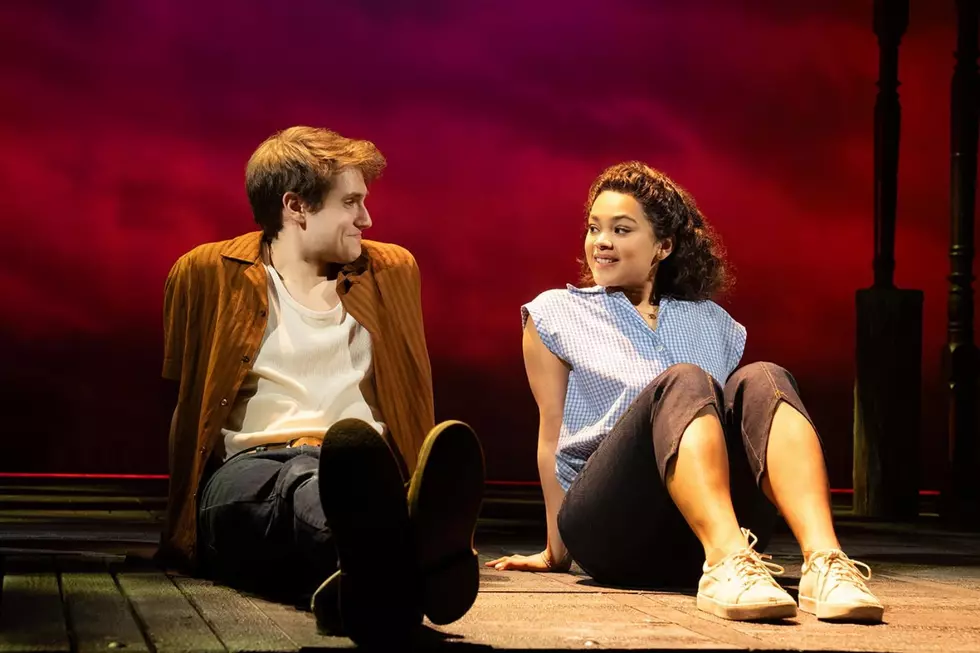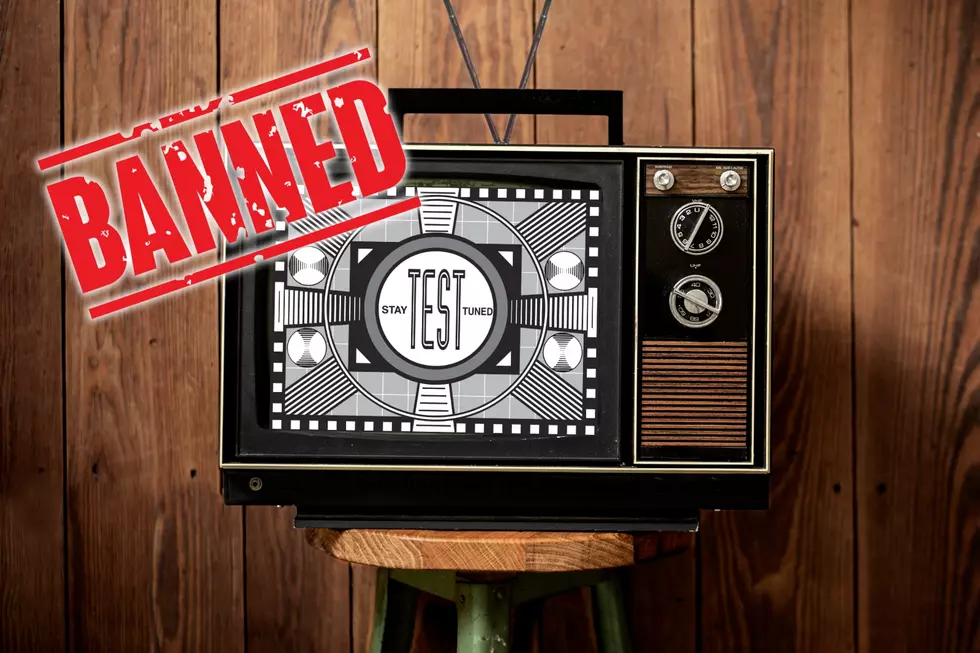
Bridgewater Rep. D’Emilia: ‘Southeast Deserves Shot at Casino’
BOSTON — A lawmaker from Plymouth County told Gaming Commission officials on Thursday that it's time to make a decision about the possibility of a casino in the southeastern part of the state to give his region the same crack at gaming jobs and economic development as Greater Boston and western Massachusetts.
Gaming Commission Executive Director Edward Bedrosian laid out for the Gaming Policy Advisory Committee the status of the commission's review of issues associated with the still-unassigned resort casino license for the southeastern part of the state, known to the commission as Region C, with the intention of weighing whether to re-open the bidding process for what would be Massachusetts's third and final commercial casino license.
Mass Gaming & Entertainment, the developer behind an unsuccessful bid to build a casino at the Brockton Fairgrounds, petitioned the commission last year to reconsider its rejected application without reopening a broad application process for the southeastern region casino license. The commission first has to determine whether that request "is appropriately in front of the commission or not," Bedrosian said.
"Then the commission can move on to reconsider public comments from before and potentially solicit updated public comments and learn, at whatever time that will be, the present status of the Mashpee Wampanoag land in trust litigation and the associated congressional efforts.”
Of concern in Region C when the commission rejected the MG&E proposal by a 4-1 vote in 2016, was the possibility of the Brockton casino competing with the Mashpee Wampanoag tribe's planned $1 billion First Light Resort and Casino in Taunton, less than 20 miles from the site of the planned Brockton casino.
Since the commission denied the MG&E proposal, the decision to grant the tribe land in trust on which the tribe planned to construct the casino has been reversed and the future of the tribe's plan remains in doubt.
Even with some of the uncertainty in Region C, Bridgewater Rep. Angelo D'Emilia said Thursday that it is time for the commission to either work with the MG&E request or re-open the bidding process to let other companies try for the license.
"I think Region C has to have the opportunity to either take on more applicants or finalize it with the Brockton application one way or another. I think it's time," he said.
"We have Regions A and B up and running, and the same opportunity should be afforded to Region C," said D”Emilia.
In its ruling from 2016, the commission wrote that it determined MG&E's application demonstrated that it had not "thought broadly and creatively about creating an innovative and unique gaming establishment that will create a synergy with, and provide a significant and lasting benefit to, the residents of the host community, the surrounding communities, the region and the Commonwealth of Massachusetts, and will deliver an overall experience that draws both residents and tourists to the gaming establishment and the Commonwealth of Massachusetts."
Since the 2011 expanded gaming law took effect, Massachusetts has licensed a slots parlor and two of three possible resort casinos. The slots parlor, Plainridge Park Casino in Plainville, opened in June 2015. MGM Springfield opened in August and Encore Boston Harbor, operated by Wynn Resorts, opened last month.
Senator Dean Tran, who represents communities in the north-central part of the state, asked Bedrosian if the possibility of a third commercial casino rests solely in Region C or if there is any "possibility to redraw the boundaries with some of the regions and allow that license in Region C to be available to certain communities."
Bedrosian, who had said he thinks no legislative action is required for the commission to simply rethink the application and bidding process, said redrawing the boundary of the region "would be a legislative question, certainly."
With a few state lawmakers present at the committee meeting -- D'Emilia, Tran and Rep. Ann-Margaret Ferrante -- Gaming Commission officials took the opportunity to issue a reminder that horse racing and simulcasting will become illegal in less than three weeks unless the Legislature extends their legal authority.
Gaming Commission General Counsel Catherine Blue said it is "fairly common" for the industry to be staring down the expiration of racing and simulcasting laws because the Legislature typically authorizes racing and simulcasting one year at a time.
"If that legislation is not renewed as of July 31, racing will stop. Live racing will stop on that day as will simulcasting," Blue said.
Last year, the Legislature did not extend the legal authority for racing and simulcasting by the July 31 deadline, and racing became illegal in Massachusetts for about 36 hours. If the same were to happen this year, Racing Director Alexandra Lightbown said it would have an immediate impact since Plainridge Park has harness horse races scheduled for Aug. 1 and 2.
"So if it expires on Wednesday night, there would have to be calls going out to people to tell them not to come in the next day for racing," she said.
D'Emilia told the Gaming Commission that he would personally inquire about the status of the racing and simulcasting extension.
"On the horse racing piece, the simulcasting piece, I think that's on us," he said. "I think typically we extend that, but I'll look into that personally."
Blue also pointed out that legislation (H 13) revamping the racing and simulcasting process to grant the Gaming Commission greater power to make decisions about simulcasting and live racing is pending before the Committee on Consumer Protection and Professional Licensure.
"We think that that would be helpful as the racing industry has changed a lot over time and requires a lot of input from stakeholders," she said. Blue added, "The key is that it would be very important to get an extension as of July 31 so that we can continue to race while we perhaps consider other options."
Thoroughbred racing has ceased in Massachusetts with the recent closure of Suffolk Downs, but the industry lives on in Massachusetts through simulcast centers where bets can be placed on races at out-of-state tracks.
to give his region the same crack at gaming jobs and economic development as Greater Boston and western Massachusetts.
Gaming Commission Executive Director Edward Bedrosian laid out for the Gaming Policy Advisory Committee the status of the commission's review of issues associated with the still-unassigned resort casino license for the southeastern part of the state, known to the commission as Region C, with the intention of weighing whether to re-open the bidding process for what would be Massachusetts's third and final commercial casino license.
Mass Gaming & Entertainment, the developer behind an unsuccessful bid to build a casino at the Brockton Fairgrounds, petitioned the commission last year to reconsider its rejected application without reopening a broad application process for the southeastern region casino license. The commission first has to determine whether that request "is appropriately in front of the commission or not," Bedrosian said.
"Then the commission can move on to reconsider public comments from before and potentially solicit updated public comments and learn, at whatever time that will be, the present status of the Mashpee Wampanoag land in trust litigation and the associated congressional efforts.”
Of concern in Region C when the commission rejected the MG&E proposal by a 4-1 vote in 2016 was the possibility of the Brockton casino competing with the Mashpee Wampanoag tribe's planned $1 billion First Light Resort and Casino in Taunton, less than 20 miles from the site of the planned Brockton casino.
Since the commission denied the MG&E proposal, the decision to grant the tribe land in trust on which the tribe planned to construct the casino has been reversed and the future of the tribe's plan remains in doubt.
Even with some of the uncertainty in Region C, Bridgewater Rep. Angelo D'Emilia said Thursday that it is time for the commission to either work with the MG&E request or re-open the bidding process to let other companies try for the license.
"I think Region C has to have the opportunity to either take on more applicants or finalize it with the Brockton application one way or another. I think it's time," said D”Emilia.
"We have Regions A and B up and running, and the same opportunity should be afforded to Region C.".
In its ruling from 2016, the commission wrote that it determined MG&E's application demonstrated that it had not "thought broadly and creatively about creating an innovative and unique gaming establishment that will create a synergy with, and provide a significant and lasting benefit to, the residents of the host community, the surrounding communities, the region and the Commonwealth of Massachusetts, and will deliver an overall experience that draws both residents and tourists to the gaming establishment and the Commonwealth of Massachusetts."
Since the 2011 expanded gaming law took effect, Massachusetts has licensed a slots parlor and two of three possible resort casinos. The slots parlor, Plainridge Park Casino in Plainville, opened in June 2015. MGM Springfield opened in August and Encore Boston Harbor, operated by Wynn Resorts, opened last month.
Senator Dean Tran, who represents communities in the north-central part of the state, asked Bedrosian if the possibility of a third commercial casino rests solely in Region C or if there is any "possibility to redraw the boundaries with some of the regions and allow that license in Region C to be available to certain communities."
Bedrosian, who had said he thinks no legislative action is required for the commission to simply rethink the application and bidding process, said redrawing the boundary of the region "would be a legislative question, certainly."
With a few state lawmakers present at the committee meeting -- D'Emilia, Tran and Rep. Ann-Margaret Ferrante -- Gaming Commission officials took the opportunity to issue a reminder that horse racing and simulcasting will become illegal in less than three weeks unless the Legislature extends their legal authority.
Gaming Commission General Counsel Catherine Blue said it is "fairly common" for the industry to be staring down the expiration of racing and simulcasting laws because the Legislature typically authorizes racing and simulcasting one year at a time.
"If that legislation is not renewed as of July 31, racing will stop. Live racing will stop on that day as will simulcasting," Blue said.
Last year, the Legislature did not extend the legal authority for racing and simulcasting by the July 31 deadline, and racing became illegal in Massachusetts for about 36 hours. If the same were to happen this year, Racing Director Alexandra Lightbown said it would have an immediate impact since Plainridge Park has harness horse races scheduled for Aug. 1 and 2.
"So if it expires on Wednesday night, there would have to be calls going out to people to tell them not to come in the next day for racing," she said.
D'Emilia told the Gaming Commission that he would personally inquire about the status of the racing and simulcasting extension.
"On the horse racing piece, the simulcasting piece, I think that's on us," said D”Emilia.
"I think typically we extend that, but I'll look into that personally."
Blue also pointed out that legislation (H 13) revamping the racing and simulcasting process to grant the Gaming Commission greater power to make decisions about simulcasting and live racing is pending before the Committee on Consumer Protection and Professional Licensure.
"We think that that would be helpful as the racing industry has changed a lot over time and requires a lot of input from stakeholders," she said.
Blue added, "The key is that it would be very important to get an extension as of July 31 so that we can continue to race while we perhaps consider other options."
Thoroughbred racing has ceased in Massachusetts with the recent closure of Suffolk Downs, but the industry lives on in Massachusetts through simulcast centers where bets can be placed on races at out-of-state tracks.
More From WBSM-AM/AM 1420









